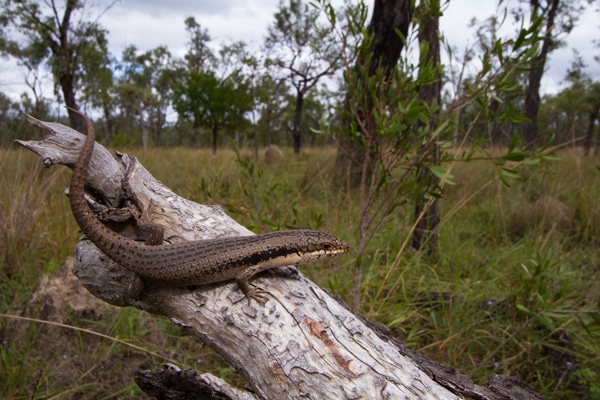Lizards adapt better when exposed to wide variety of weather patterns
A new study on lizards and climate change has determined that when lizards are found in localities that have wider ranging changes in weather, they are better able to adapt to changes in climate. The study, which tested the Climatic Variability Hypothesis in Rapoport’s rule, (species living in high environmentally variable locations can tolerate more environmental change) determined that three species of Australian skinks (Egernia striolata, Carlia rubrigularis, legless lizard) living in areas with greater weather changes had a wider geographic range.
The reptiles also showed a higher tolerance to change in environments. The CVH is a statement in Rapoport’s rule which says that as a species live at higher latitudes, their range gets larger than those at lower latitudes.
James Cook University Ph.D candidate Anna Pintor, lead author of the study says that in order to understand how climate change will change a species in the future, scientists need to understand how animals currently distribute themselves.
“Understanding underlying mechanisms like the CVH is one way to do that, but we need to do a lot more before we can tell exactly how species will be impacted and how to best help them deal with climate change,” Pintor said.
Pintor’s paper is published in the journal Ecological Monographs.


